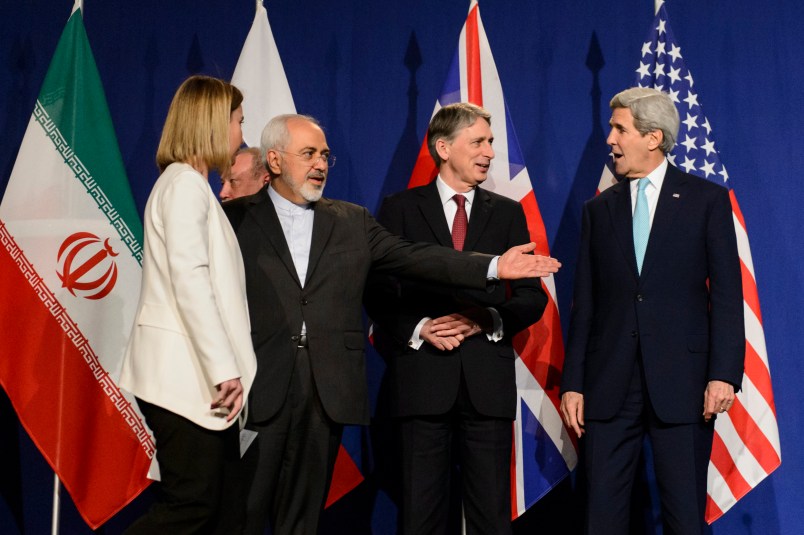There is no shortage of hyperbolic commentary about the framework agreement on the Iranian nuclear program. But one strain of the conversation is particularly odd and deserves more attention. In what can only taken as a tacit admission that the proposed restrictions on Iran’s program are quite strong, we are now hearing that the agreement needs to include restrictions on Iranian ballistic missile development, support for Hezbollah and Hamas, support for the Assad regime in Syria, support for terrorism and even more amorphously an end to destabilizing the Middle East. Perhaps most preposterously, Prime Minister Benjamin Netanyahu is demanding that Iranian recognition of Israel as a Jewish state.
Now all of these would be great from the point of view of the US and its regional allies as status quo powers and others would simply be good in more objective moral terms. Indeed, if what was being contemplated was opening diplomatic relations with Iran or entering into some sort of de facto alliance with them then at least some of these might be worth insisting upon.
But all the threat talk we hear about an Iranian nuclear weapon is that it is so grave and singular a threat that almost anything and everything must be considered to counter it – even a catastrophic war to push the Iranians’ nuclear capabilities back years. If it’s really that serious – and I think it is that serious – why would you do anything to get in the way of securing that goal?
Adding something preposterous like demanding Iranian recognition of Israel (something even most of what must now be considered Israel’s de facto anti-Iranian allies like Saudi Arabia won’t do) is clearly no more than an effort to make any agreement impossible. Other demands like ending support for Assad might be more plausible. But again, if the Iranians having a nuclear warhead is really this kind of singular threat, why would you put something which is clearly not at all comparable as an obstacle in the way of solving it? One might as well demand that the Iranians do something to make Farsi easier for westerners to learn as part of the deal.
Yes, these are all things that would be very nice to have. But they each pale in comparison to something that the regional powers agree is a must-have – preventing the Iranian regime from building nuclear weapons, both because of the immediate threat of such weapons in the hands of a revisionist power but also because of the regional arms race it might trigger. Making such demands can only mean one of two things: either you don’t really believe an Iranian nuclear weapon is quite as dangerous as you claim or you really don’t want any agreement short of war. Or to put the latter point differently, you don’t want any negotiated settlement but only an abject defeat, which is probably only achievable through military action.
Demanding a sterner deal on the nuclear front is one thing. Adding on these non-nuclear riders only makes clear that you’re not playing on the level at all.






